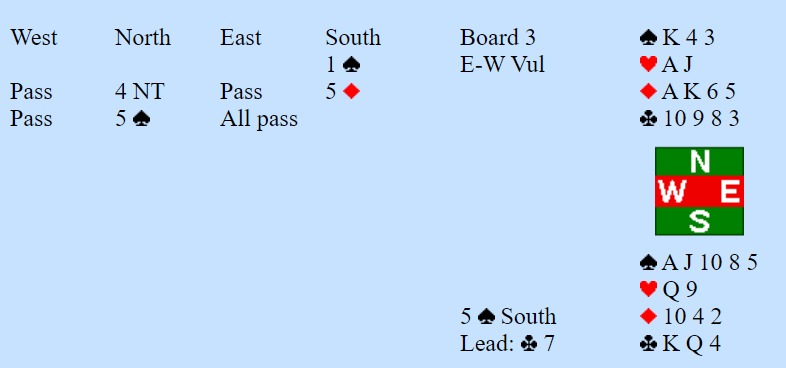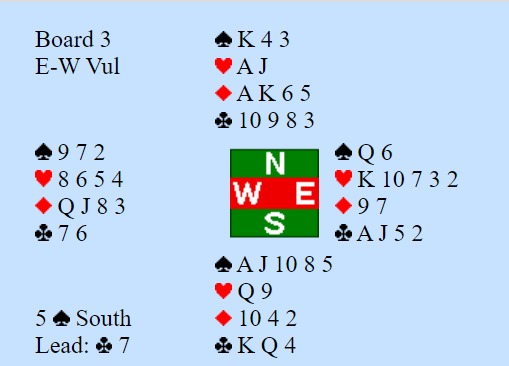
When we start playing bridge, one of the first things one learns is about finessing. Then, as one progresses, one learns more, when not to finesse; finessing into the danger hand etc. etc.
As one plays more, we also hear mesmerising stories about how opponents can be squeezed and the various ways in which this can be done.
Between these two is an intermediate step which, in my opinion, is one of the first bits of technique to add to one's declarer play.
Consider this hand below

East wins the opening lead with the ♣A and returns the ♣2 on which West duly peters. Plan the play.
Having opened with an eight loser hand and an unsupported queen, we wonder if partner could have done better with bidding a slower 2♦. We would have countered with 2NT and, in response to partner's slam try of 3♠, signed off in 4♠.
Nevertheless, we are where we are and we start as we were trained
- We appear to have 7 sure tricks after the club Ace appears on the right
- We have a definite diamond loser and possibly 1 loser each in hearts and spades
- For the contract to make we need to have both, the spade finesse as well as the heart finesse right.
The probability of both finesses working, with no additional information , is 25% (similar to the two heads in a row concept). Is there any way to increase our chances?
At any rate, we need a little more information so we lead a ♠ to the King and a low ♠ back and, mercifully, the ♠Q appears.
What now?
Analysis
We know that East has started with 4♣ and 2♠. If, by some small chance, he is dealt only 2♦, our contract is cold.
Accordingly, we draw the last trump, and cash the ♣Q. We then cash the ♦A and ♦K and exit with the fourth ♣, pitching a diamond.
Our careful planning works wonders as this was the full hand.

Note that this line of play caters up to 4♠ in East's hand. If West shows out on the second ♠, we return to dummy with the ♦A, repeat the finesse, cash the ♣Q. return to dummy with the ♦K and play the fourth club.
Further Analysis
You intelligent readers would have spotted that if East had had a third ♦, the contract is not cold as he could safely exit with it. But, then we would ruff the ♦. If West follows, we can pitch our ♥ loser on the fourth ♦. And if he doesn't, we will have to pray that the ♥ finesse works.
End playing an opponent is thrilling and gives you joy more than almost anything else at the bridge table.
Did you play the hand right? Do let us know in the comments section below!
Disclaimer : All opinions are entirely those of the author and are no reflection of the views of the BridgeFromHome Team.
Registration Links
| Tournament | Event | Deadline |
|---|---|---|
| | ||
| |
